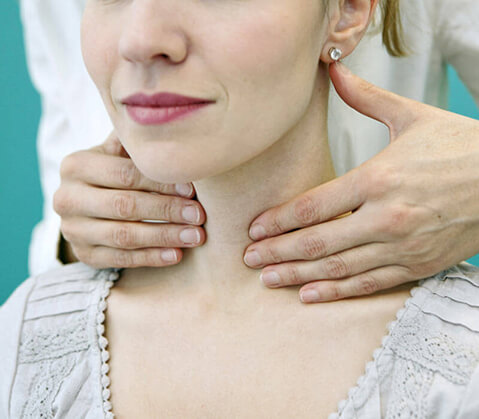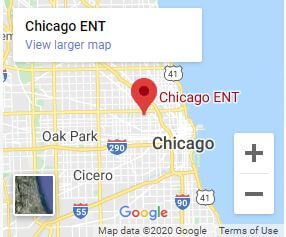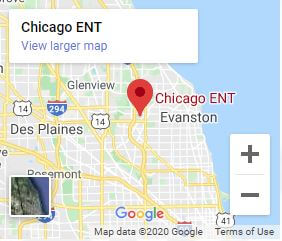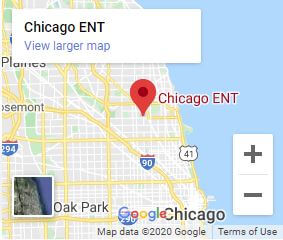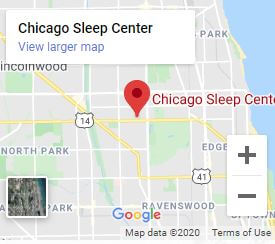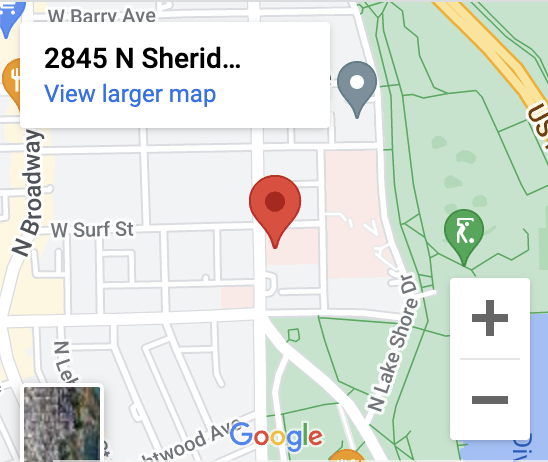Do you have a constant case of the sniffles? Is your nose always itchy?
You may have allergic rhinitis or allergies. A runny nose, itchiness, congestion, and other uncomfortable symptoms often accompany allergic rhinitis.
Keep reading to learn more about allergies, how allergic rhinitis could be responsible for your chronically runny nose, and ways to find relief.
What is an Allergy?
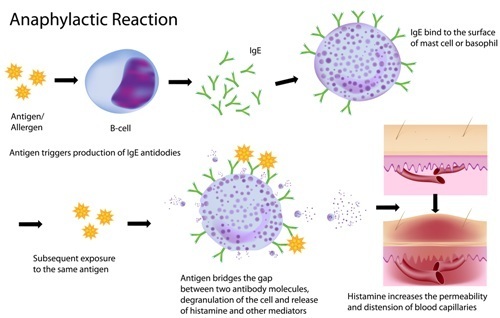
An allergy occurs when your immune system overreacts to a substance usually harmless to most people. The substance is known as an allergen.
Allergens trigger symptoms in people who are allergic to them. These symptoms can range from mild to severe.
The most severe allergic reaction is anaphylaxis, a life-threatening medical emergency. Anaphylaxis can make you go into shock and cause the following symptoms:
- Hives
- Dizziness
- Fainting
- A rapid, weak pulse
- Nausea and vomiting
- A drop in blood pressure
- Severe shortness of breath
- Cardiac arrest
How Allergies Cause a Runny Nose
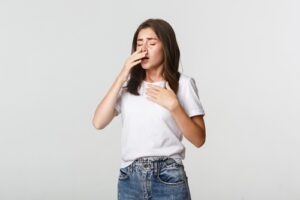
Allergic rhinitis or allergies occur when there is inflammation inside your nose caused by indoor and outdoor allergens. When you breathe in allergens, your immune system reacts by releasing histamine.
Histamine is a natural chemical created by the body that causes your nasal lining to become inflamed or swollen and produce more mucus. The mucus is supposed to trap and remove what’s causing the irritation and inflammation. However, it also leads to a runny nose and other symptoms.
You may get allergic rhinitis during certain times of the year because of a sensitivity to seasonal allergens. These are called seasonal allergies.
Other people have allergic rhinitis throughout the year, a condition called perennial allergic rhinitis.
Causes of Allergic Rhinitis
Allergens that cause allergic rhinitis include:
- Mold
- Fungi
- Pet dander
- Dust mites
- Pollen from weeds, grass, or trees
- Waste or saliva from cockroaches
- Irritants like cigarette smoke, diesel exhaust fumes, and perfumes
Symptoms of Allergic Rhinitis
A runny nose is one of the main symptoms of allergic rhinitis. Other bothersome symptoms include:
- Congestion
- Sneezing
- Coughing
- Headaches
- Red, watery, or swollen eyes
- Itchy nose, eyes, mouth, or throat
Home Remedies for Allergic Rhinitis
If you have allergic rhinitis, you can try home remedies to improve your symptoms, including:
Using a Neti Pot
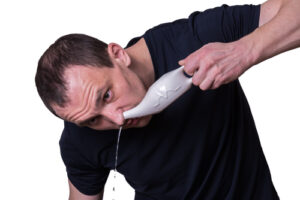
A neti pot is a mini tea-pot-like container designed to irrigate your nose and flush out mucus. To use a neti pot, fill it with a pre-packaged or homemade saltwater solution.
Then, bend your head sideways over the sink and pour the saline mix through the spout into your upper nostril. Allow the water to drain down your lower nostril and rinse allergens and mucus from your nasal cavity.
Clean Your Bedding Regularly
Dust mites love bedding because they can feed on the dead skin cells your body sheds. You can kill dust mites by washing your bedding in hot water frequently.
Also, remember to encase your mattress and pillows in dustmite-proof covers to keep them as clean as possible from other allergens.
Over-the-Counter Medications
The following medications can help with allergic rhinitis:
Antihistamines

Antihistamines work by blocking histamine. Blocking histamine stops symptoms like sniffles and congestion while helping to reduce your allergic response.
Nasal Steroid Sprays
Nasal steroid sprays reduce inflammation, relieving swelling and congestion in your nasal passages that may occur due to allergies.
Decongestants

Decongestants can ease the symptoms of allergic rhinitis by shrinking the blood vessels in your nose and decreasing mucus production. You should only use decongestants for three to five days, as they can increase your blood pressure.
Allergic Rhinitis Treatment
If over-the-counter medications and at-home remedies aren’t providing you the relief you’re seeking, it may be time to visit one of the allergists at Chicago ENT. Your treatment plan may include the following:
Avoiding What You’re Allergic to
Irritants like dust and pet dander can make a runny nose or other symptoms of allergic rhinitis worse. Once you’ve identified your triggers, do your best to avoid them or limit your exposure whenever possible to reduce your symptoms.
For instance, you can keep your windows closed during pollen season and remain indoors when pollen levels are high.
Carrying an EpiPen
Your allergist may prescribe an Epinephrine Auto-Injector, commonly known as an EpiPen if you’re at an increased risk for severe allergic reactions. It’s critical to keep your EpiPen with you at all times.
Also, inform people near you where you keep your EpiPen, as it can save your life. An EpiPen is a pen-like device that contains the drug epinephrine.
Once injected, epinephrine quickly counteracts anaphylaxis, narrowing your airways and making breathing hard or impossible. Epinephrine works in the following ways:
- It helps your heart beat harder and faster to maintain your blood pressure
- The medication relaxes the muscles in your airways, which makes it easier to breathe
- It reduces swelling throughout your body and stops the allergic response
An EpiPen makes it easy to deliver epinephrine if an allergic reaction happens. The device is preloaded and offers fast relief in a life-threatening situation. All you need to do is inject the EpiPen into the muscle or under the skin of your outer thigh.
Allergy Shots

Allergy shots are an immunotherapy treatment that effectively treats allergic rhinitis. The therapy exposes you to gradually increasing doses of a particular allergen, decreasing your immune response.
Patients receive allergy shots regularly for a period of three to five years. By receiving regular, small amounts of the allergen, patients can start experiencing relief from their symptoms. For many patients, this relief lasts for an extended time.
Biologic Medications
Biologics are medications made from cells of living tissues. They help reduce inflammation.
Rather than suppressing your entire immune system, biologics target specific molecules, antibodies, or cell receptors that cause tissue inflammation.
Stop Your Runny Nose

You don’t have to live with a chronically stuffy or runny nose. If at-home remedies are not working, the expert allergists at Chicago ENT can help.
We’ll get to the bottom of what’s causing your runny nose and provide best-in-class treatment that will provide long-term relief. Do you want to find a lasting solution for your congestion and runny nose?
Schedule your appointment today at one of Chicago ENT’s convenient and easy-to-access locations to get on the path to finding relief!





